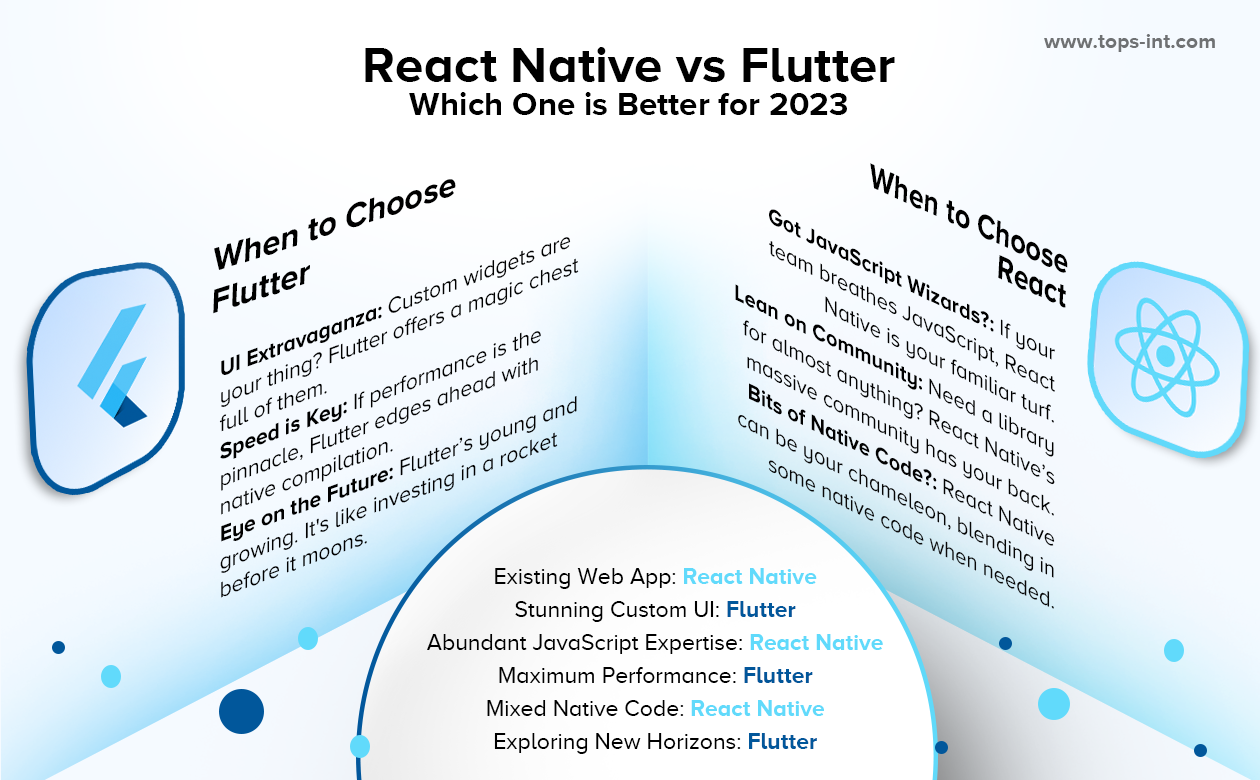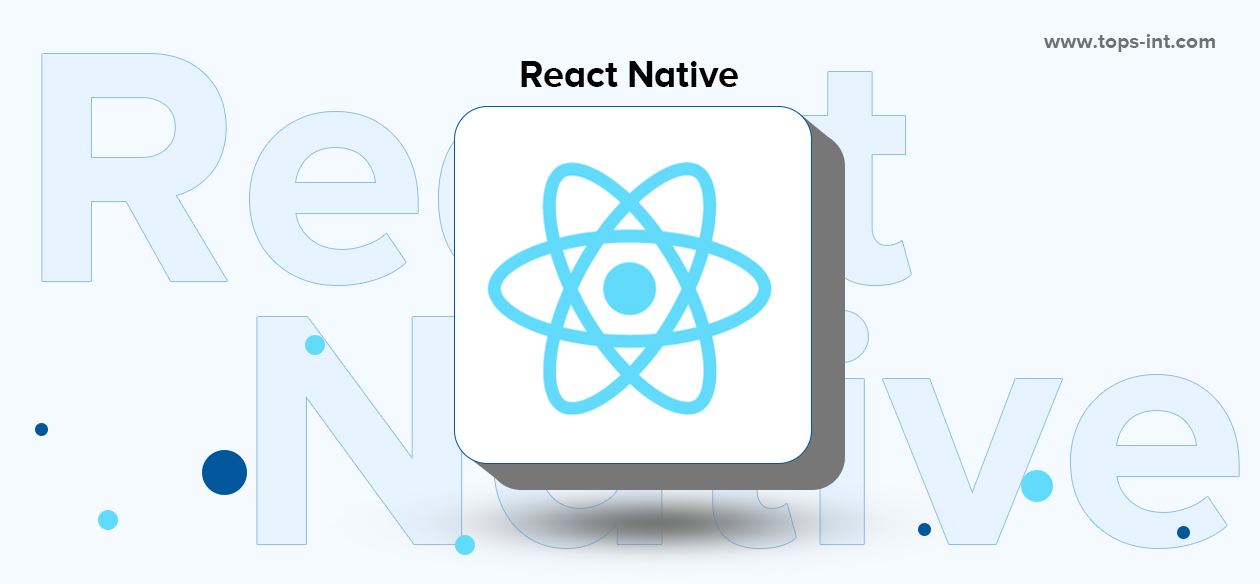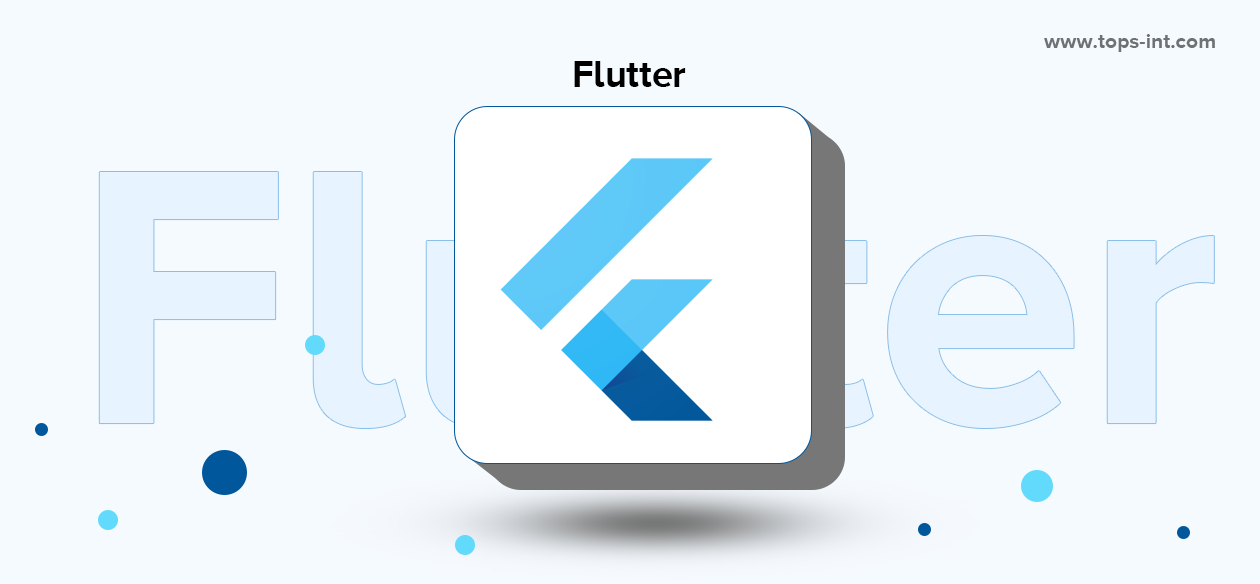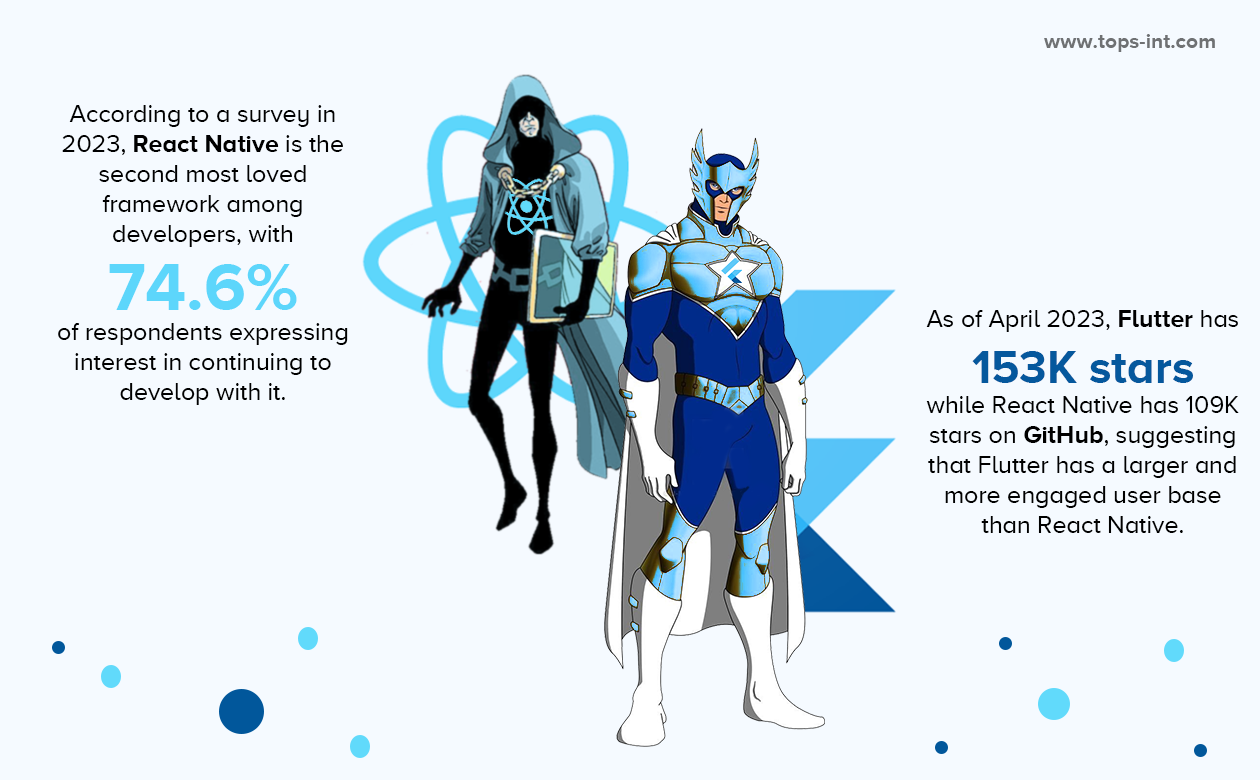You have a JavaScript background: If you or your team are JavaScript wizards, React Native will feel like home.
You're aiming for short time-to-market: With the vast number of third-party libraries and its "learn once, write anywhere" approach, you can roll out MVPs rapidly.
Your app doesn't need complex animations: For apps with simple UI and less emphasis on animations, React Native is a solid choice.
There you have it! Whether you wield the React Native wand or don the Flutter cape, you’re set to conquer the app universe.
Enroll In Top-Rated Courses!
TOPS Technologies is a renowned IT training and placement company with 15 years of experience in the industry. We offer the best
Flutter course in Ahmedabad along with other courses like React Native, iOS training, etc. The Flutter course at TOPS Technologies is designed to take students from the basics to advanced concepts, ensuring they are well-equipped for high-paying job roles.
With a track record of placing over 1 lakh students in top companies, TOPS Technologies has established tie-ups with more than 3000 companies. This extensive network opens up numerous job opportunities for their students. Having 19 offices across India, they ensure easy accessibility for learners.
By enrolling in the Flutter course at TOPS Technologies, students can gain in-depth knowledge, practical skills, and industry exposure. This training paves the way for lucrative job prospects in mobile app development.
Conclusion
We've delved into the depths of React Native and Flutter – two giants in the world of cross-platform development. Your choice between the two should be a cocktail of your project’s requirements, your team’s expertise, and your desired user experience. Both frameworks have their own strengths and quirks, but what's clear is that either way, you're in good hands.
Now, for smooth sailing on your app development journey, you might want to consider getting the right partner onboard. Enter
TOPS Technologies - a beacon for aspiring app developers and businesses alike. With our expertise in mobile app development, particularly in React Native and Flutter, we are the wind beneath your app’s wings. Suppose you take our Flutter course, then you will be taught from the basics like
what is Flutter all the way to advanced concepts! So why not let them handle the nitty-gritty while you focus on the big picture? Fly high with TOPS Technologies!
FAQs
What is the main difference between React Native and Flutter in 2023?
The primary distinction between React Native and Flutter in 2023 will be in the underlying technology. While Flutter utilises Dart and provides a full UI toolkit, React Native uses JavaScript and depends on native components. Developers familiar with JavaScript tend to choose React Native, which has a bigger developer community. Flutter, on the other hand, is becoming more and more popular because of its quick performance, hot reload functionality, and extensive library of pre-built UI components.
Which framework provides better performance, React Native or Flutter, in 2023?
Flutter outperforms React Native in terms of performance in 2023. Because of the direct native code compilation capabilities of Flutter's architecture, rendering times and animation lag are reduced. Contrarily, React Native uses a bridge to connect JavaScript and native components, which might result in performance overhead.
Which framework offers better UI customization options in 2023, React Native or Flutter?
In 2023, Flutter offers a more complete and versatile set of possibilities when it comes to UI modification. The UI toolkit for Flutter gives developers greater control over the appearance and feel of the app by enabling them to design highly configurable and aesthetically pleasing interfaces.
Despite having respectable customization options, React Native may need extra libraries or third-party components for complicated UI designs.
Which framework has better community support and ecosystem in 2023, React Native or Flutter?
React Native still has an edge in 2023 in terms of ecosystem and community support. React Native boasts a bigger developer community, thorough documentation, and a huge selection of open-source frameworks and plugins.
The community of Flutter is expanding quickly, nevertheless, and it has become quite popular because of its distinctive qualities.
Which framework is better for cross-platform development in 2023, React Native or Flutter?
In 2023, React Native and Flutter are both respectable choices for cross-platform development. React Native is a popular option for businesses seeking speedy development and code reuse since it has been on the market longer and has a bigger user base. Flutter is gaining popularity for its ability to develop aesthetically pleasing applications across several platforms with a single codebase because of its performant UI rendering and quick reload capability. The decision between the two is influenced by several elements, including project needs, developer comfort level, and desired performance.









